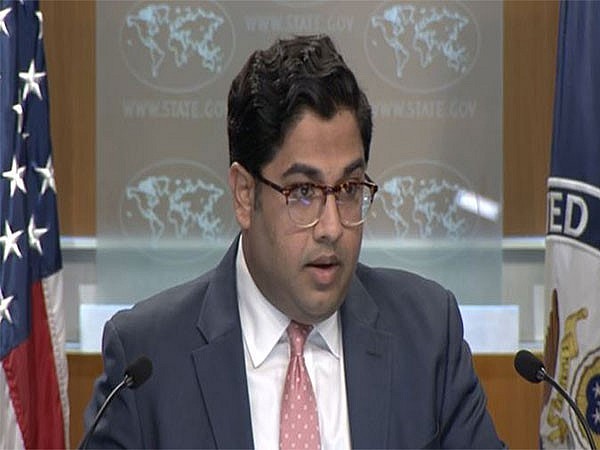 |
| Principal Deputy Spokesperson of the US State Department, Vedant Patel said that China’s expansive and unlawful maritime claims in the South China Sea are inconsistent with international law. |
In a regular press briefing on Tuesday, the Principal Deputy Spokesperson of the US State Department, Vedant Patel said that China’s expansive and unlawful maritime claims in the South China Sea (called East Sea in Vietnam) are inconsistent with international law.
“We note that the PRC’s recently released national map has elicited a wave of protests from countries that reject the territorial and maritime claims depicted on it. With respect to the dashed lines in the South China Sea depicted on the new map, like many countries, we reject the unlawful maritime claims reflected on that map and call on the PRC to comport its maritime claims in the South China Sea and elsewhere with the International Law of the Sea, as reflected in the 1982 Convention on the Law of the Sea,” he said.
Rejecting China’s new map claiming territories of several countries, he further added, “China’s expansive and unlawful maritime claims in the South China Sea were determined to be inconsistent with international law by a unanimous tribunal in the Philippines China arbitration brought under the dispute settlement provisions of the convention.”
With this, 10 reactions have rejected China’s new Map. India, Vietnam, the Philippines, and Malaysia rejected it. Indonesia said “Comply with UNCLOS”, Nepal too reacted to it and asked Beijing to “respect” its 2020 Map.
Regarding the release of the so-called “Standard Map” by China, the Russian envoy to India, Denis Alipov had recently said it “doesn’t change anything on the ground..”
China, on August 28, released the 2023 edition of its “standard map”, incorporating the country’s claims over the nine-dash line, thereby laying claim to a large part of the South China Sea. Vietnam, the Philippines, Malaysia, and Brunei have all claims over the South China Sea areas.
India lodged a strong protest against China, rejecting claims made by Beijing in the so-called “standard map” and saying they have no basis to claim India’s territory.
The Ministry of External Affairs (MEA) said such steps from the Chinese side would only complicate the resolution of the boundary question.
Earlier, External Affairs Minister S Jaishankar said it is an “old habit” of China to stake claim on territories that do not belong to them. He dismissed Beijing’s “absurd claims” and said “putting out a map does not mean anything.”
“China has put out maps with territories (that are) not theirs. (It is an) old habit. Just by putting out maps with parts of India… this doesn’t change in anything,” Jaishankar said, adding, “Our government is very clear about what our territories are. Making absurd claims does not make other people’s territories yours,” Jaishankar said.
However, in an attempt to appear unfazed, Beijing termed its publication of the so-called “standard map” as a ‘routine practice’ and asked the concerned nations to view it in an “objective and rational light”.
The “dotted line” represents China’s unilateral claims over much of the resource-rich East Sea, which has been deemed illegal by an arbitral ruling by The Hague’s Permanent Court of Arbitration in 2016.
With the statement, Vietnam has become the fourth country in the ASEAN to voice against China’s “standard map,” following Indonesia, the Philippines, and Malaysia – who are also involved in the East Sea disputes.








